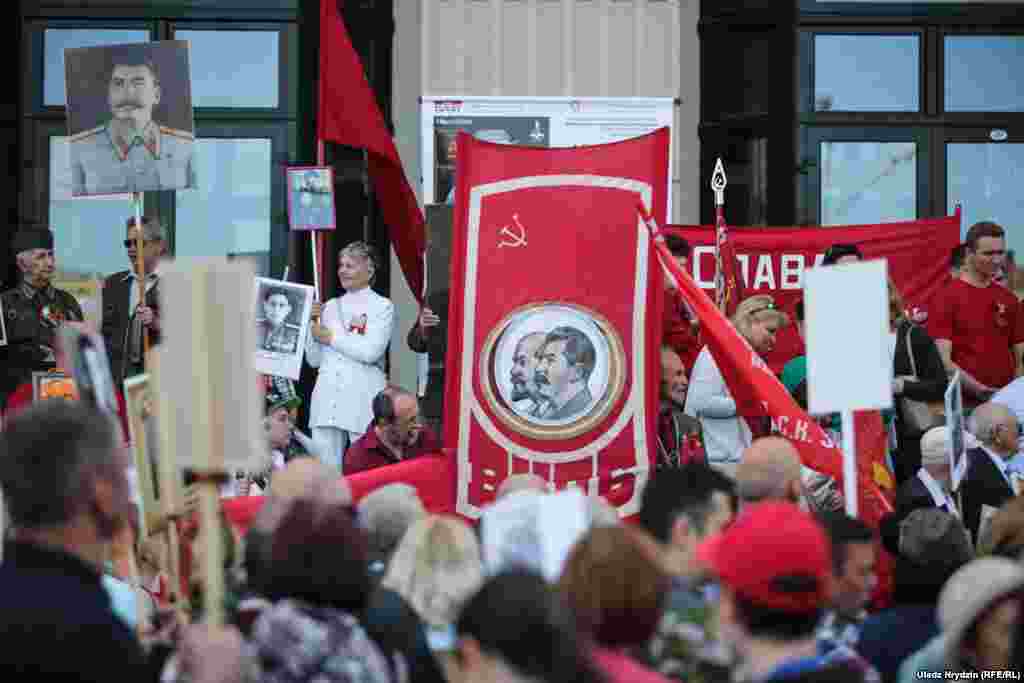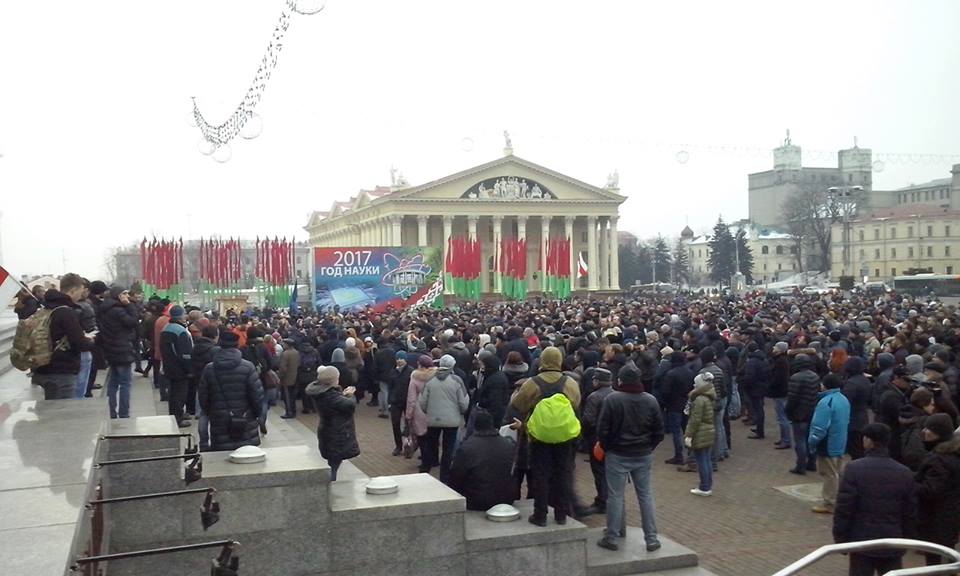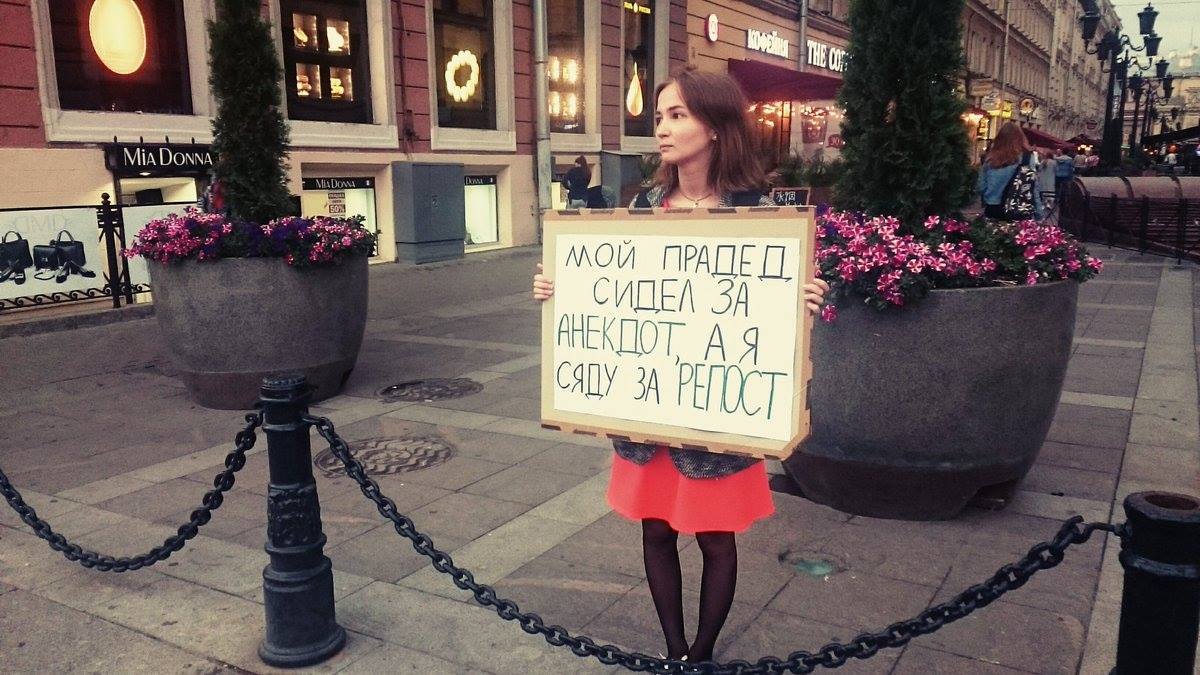Despite his heavy-handed approach to any and all demonstrations that he and his regime have not approved in advance, Alyaksandr Lukashenka did not order the dispersal of 1500 Belarusians who marched through the center of Minsk with pro-Moscow banners and shouting pro-Moscow slogans.
Instead, the Belarusian leader let it go forward, an indication that he is afraid to offend Moscow and that he has “lost control over the mass consciousness of Belarusians” to what is in fact “a pro-Russian ‘fifth column’ on the streets of Minsk,” according to Valer Karbalevich of Radio Liberty
’s Belarusian Service.
The marchers, the journalist says, were “well organized,” had lots of prepared things like St. George ribbons, pictures of Lenin and Stalin, and the like. “Young people wore t-shirts with lettering declaring ‘Army of Russia,’ ‘Donetsk Peoples Republic,’ ‘Polite People
,’ and the Russian state coat of arms.”
Russian media hyped the event, but “the paradox is that the absolute majority of people who marched with portraits were certain that they were taking part in an action of ‘the Immortal Regiment’ because they live in a Russian information space and look at the mirror through the distorted mirror of the federal channels of the Russian Federation.”
They thus felt themselves unconsciously to be “part of ‘the Russian world’ and this is the most dangerous thing of all.” The Belarusian authorities initially banned the march but then a day before it was to occur put out the word that no action would be taken against it, Karbalevich says. The only restriction they imposed was to require people to pass through metal detectors.

First of all, Lukashenka didn’t want to spoil the holiday; second, he and his regime probably didn’t expect that the march would be so openly pro-Russian; and third, there were some of his own political allies present. But it is the fourth reason that is the most important, the Radio Liberty correspondent says.
It is one thing to crush Belarusian nationalists; it is quite another to take action against a pro-Russian group, something that would inevitably create “a definite scandal in relations with Russia.” But it would also create problems for Lukashenka with his own people “who also see the world through the prism of Russian television, consider that ‘Crimea is ours’ and that Russia is the chief support of good in the world, and support the idea of imperial revanchism.”
Up to now, many had dismissed the existence of such a pro-Russian group within Belarus as “only a fact of sociology.” But this demonstration “showed that the problem has become a political phenomenon and is being transformed into political action. We clearly saw in the center of the capital a pro-Russian ‘fifth column.’”
And now “something must be done about it.”
Read More:
- Putin planning to interfere in Belarusian elections to replace Lukashenka, Sivitsky says
- Struggle for Belarus: Minsk is promoting Belarusianization; Moscow, re-Sovietization
- Can Forrest Gump defeat Russian propaganda in Belarus?
- Is Lukashenka worried about the loyalty of the Belarusian siloviki?
- Russian-speaking Belarusians and Ukrainians threaten Putin’s ‘Russian world’ and Russia itself






